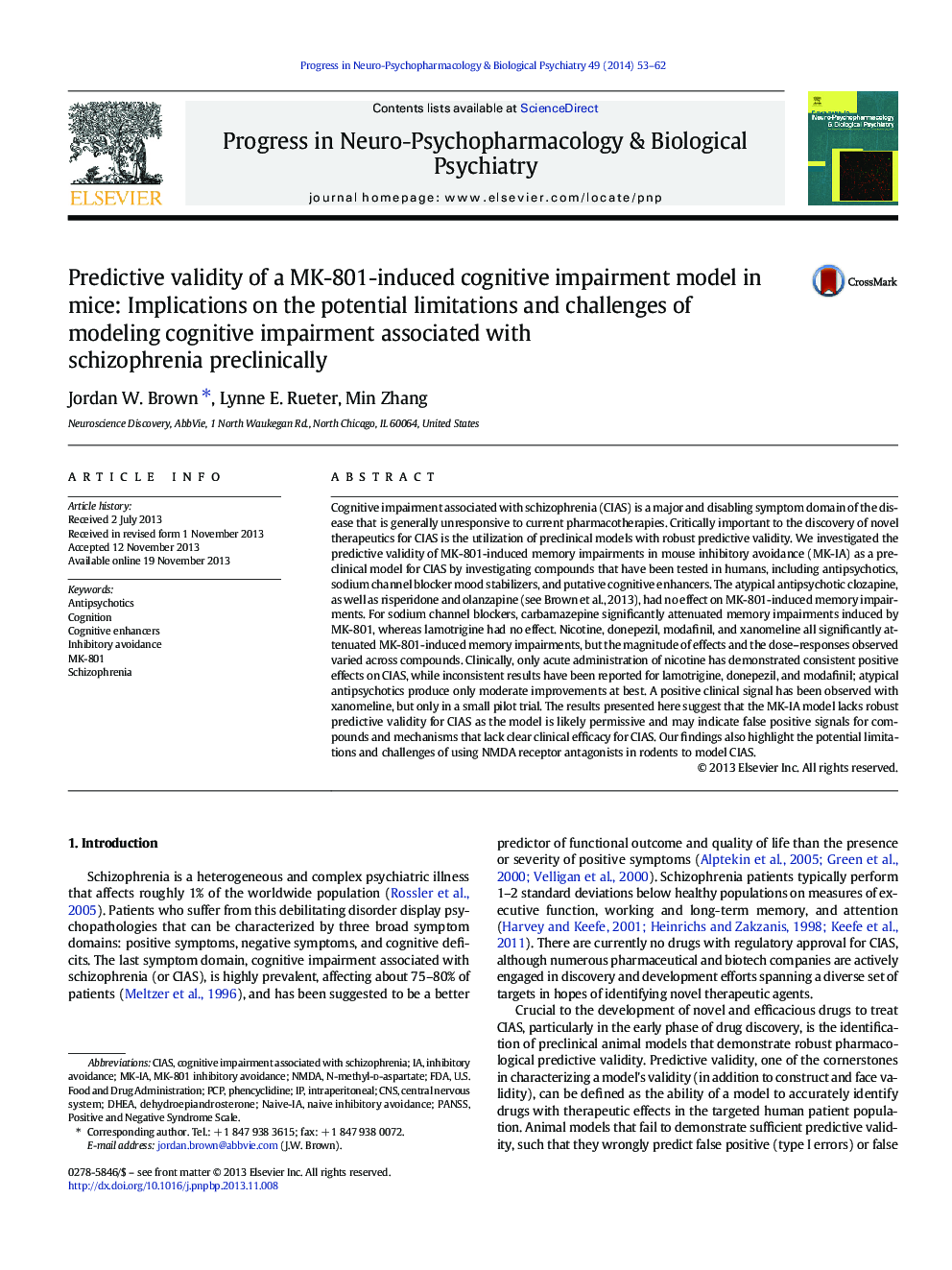| Article ID | Journal | Published Year | Pages | File Type |
|---|---|---|---|---|
| 2564872 | Progress in Neuro-Psychopharmacology and Biological Psychiatry | 2014 | 10 Pages |
•We investigated the predictive validity of a mouse cognition model for CIAS.•MK-801 was used to induce memory impairments in inhibitory avoidance.•Antipsychotics, mood stabilizers, and cognitive enhancers were tested.•Results suggest that the model lacks robust predictive validity for CDS.
Cognitive impairment associated with schizophrenia (CIAS) is a major and disabling symptom domain of the disease that is generally unresponsive to current pharmacotherapies. Critically important to the discovery of novel therapeutics for CIAS is the utilization of preclinical models with robust predictive validity. We investigated the predictive validity of MK-801-induced memory impairments in mouse inhibitory avoidance (MK-IA) as a preclinical model for CIAS by investigating compounds that have been tested in humans, including antipsychotics, sodium channel blocker mood stabilizers, and putative cognitive enhancers. The atypical antipsychotic clozapine, as well as risperidone and olanzapine (see Brown et al., 2013), had no effect on MK-801-induced memory impairments. For sodium channel blockers, carbamazepine significantly attenuated memory impairments induced by MK-801, whereas lamotrigine had no effect. Nicotine, donepezil, modafinil, and xanomeline all significantly attenuated MK-801-induced memory impairments, but the magnitude of effects and the dose–responses observed varied across compounds. Clinically, only acute administration of nicotine has demonstrated consistent positive effects on CIAS, while inconsistent results have been reported for lamotrigine, donepezil, and modafinil; atypical antipsychotics produce only moderate improvements at best. A positive clinical signal has been observed with xanomeline, but only in a small pilot trial. The results presented here suggest that the MK-IA model lacks robust predictive validity for CIAS as the model is likely permissive and may indicate false positive signals for compounds and mechanisms that lack clear clinical efficacy for CIAS. Our findings also highlight the potential limitations and challenges of using NMDA receptor antagonists in rodents to model CIAS.
